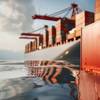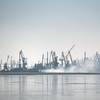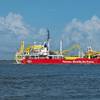INTERTANKO’s fleet has grown by 12.5% or 21.3m deadweight tons to 194m dwt owned by independent tanker owners as tankers belonging to fifteen owners put up to its Council for their consideration were approved. 16 applications for associate membership were also considered and approved by Council.
The two biggest owners entering are Frontline (13.3m dwt) and American Eagle Tankers (6.1m dwt). The next six largest entries are Marmaras Navigation, Sea Fortune Shipping, Estoril Navigation, A.K.Shipping and Trading, Eastwind Shipmanagement, FR8 Shipmanagement, and Calisa SpA, with 1.6m dwt between them. Also JB Ugland, Zest Shipping, FAL Shipping, Transmarine Management, Chemmariner Shipping, with 250,000 dwt between them.
“We are delighted to welcome these new members to INTERTANKO,” said Stephen Van Dyck, Chairman of the Association. “They will add new weight and impetus to our work, and re-emphasise the authority of the Association and all that we do in the tanker industry.”
INTERTANKO’s share of the independent tanker fleet of tankers, and chemical carriers, over 5,000 dwt is 66% **.
Focusing on larger independent companies, INTERTANKO represents 78% of the independent fleet of those companies with 1m dwt or more, and 75% of the independent fleet of those companies with 10 tankers or more. Focusing on international chemical tankers, INTERTANKO represents over 80% of the fleet.
INTERTANKO’s Council met this week in London in the headquarters of the International Maritime Organization (IMO). Council Members, a number of whom are regular visitors to the IMO because of INTERTANKO’s consultative status with the organisation, were warmly welcomed by Thimio Mitropoulos, Secretary-General of the IMO as “those who own or operate ships with the best safety record in the entire industry.”
But while applauding the industry’s safety and environmental record, he stresses that “it is absolutely crucial that we do not rest on our laurels – on the contrary we must always remember that much remains to be done.” And the most important thing? “To continue to intensify our efforts to prevent accidents happening in the first place.” He suggests a two –pronged approach which isolates and marginalises sub-standard players and encourages and rewards quality. “On the one hand we need to strive to make the good things even better while, on the other, we must spare no effort to eliminate the ‘rotten apples’.”
Helping to raise standards is a core part of the work of INTERTANKO and its members, and is the key to the Poseidon Challenge which is seeing top executives from all sectors of the industry invited to Singapore during the Association’s Annual Tanker Event March 29-31, 2006 to demonstrate their commitment to raising standards in practice and thereby achieving continuous improvement.
** Since we welcomed chemical tankers into the association, we now calculate the tanker fleet from 5,000 dwt instead of from 10,000 dwt. This means that the global fleet against which we measure our fleet share has grown. To put this in perspective, 90 companies have fleets of 1m dwt and above, 300 have fleets of 100,000-1m dwt, 560 have fleets 10,000-100,000 dwt. That is 950 companies with fleets 10,000 dwt upwards. Yet as many as another 740 companies have fleets with a total deadweight below 10,000 dwt, and two thirds of these have fleets of below 5,000 dwt.
Featured videos

Unlock Onboard Data Efficiencies

Tracking Foreign Vessels Working in the U.S. Jones Act Market

Inmarsat Enhances Service to Drive Digitalization
Subscribe for
Maritime Reporter E-News
Maritime Reporter E-News is the maritime industry's largest circulation and most authoritative ENews Service, delivered to your Email five times per week









